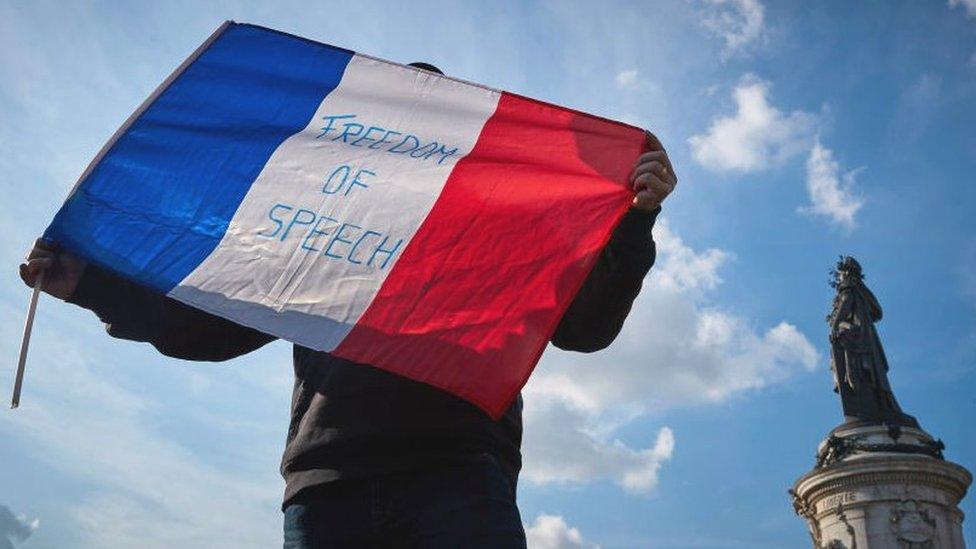France terror attacks: Macron calls for EU free movement reform
- Published
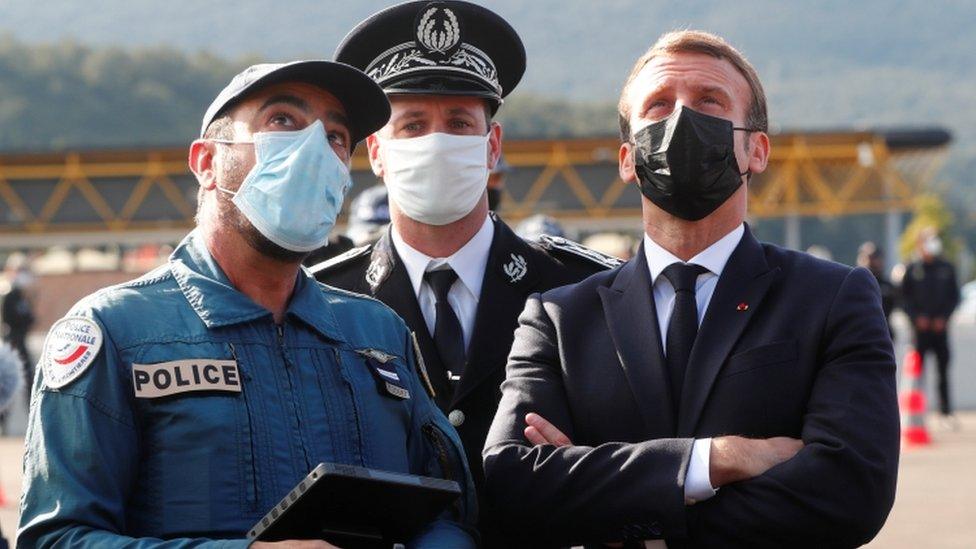
President Macron (right) said France was fighting "Islamist separatism, never Islam"
France has stepped up security at its borders and is calling for a rethink on free movement in the EU after a spate of suspected Islamist terror attacks.
President Emmanuel Macron said the EU's Schengen area, which allows people to cross borders freely, may need reform.
A knife attack in Nice last week, which killed three people, was blamed on a Tunisian migrant who crossed into France from Italy in October.
It was the second alleged jihadist attack in France in just over a month.
France's security alert is at its highest level, with thousands of soldiers deployed to protect places of worship and schools, since teacher Samuel Paty was beheaded for showing cartoons depicting the Prophet Muhammad to his students.
Police gunshots heard as three killed in Nice 'Islamist terrorist' stabbings
President Macron has since sparked anger and protests in some Muslim-majority countries with his robust defence of France's values and freedoms that permitted the publication of cartoons.
But he has rejected right-wing calls for greater safeguards to protect the country's principle of secularism, saying: "The situation does not warrant changing the constitution."
And, in a letter to the Financial Times, external, he made clear France was fighting "Islamist separatism, never Islam". He accused the British newspaper of misquoting him in an article - which has since been removed from its website - suggesting he was "stigmatising French Muslims for electoral purposes".
"I will not allow anybody to claim that France, or its government, is fostering racism against Muslims," he said in the letter to the editor.
What did Macron say about border security?
Speaking during a visit to the French-Spanish border, Mr Macron said he would be doubling police border patrol numbers from 2,400 to 4,800 "because of the worsening of the threat" of terrorism.
He also said he would be unveiling proposals for strengthening border security within the EU at the next EU summit in December, which would include "intensifying our common border protection with a real security force at the external borders".
Under the Schengen agreement, people within the EU are able to pass freely across borders without showing their passport. However, border checks have made a return in recent months because of the coronavirus pandemic.
What do we know of the recent attacks?
An elderly woman was beheaded and two other people were killed in a church in Nice on 29 October. Witnesses said they heard the attacker shout "Allahu Akbar" (God is Greatest).
The suspect, who was shot and detained by police, was identified as Brahim Aioussaoi - a 21-year-old Tunisian man who had travelled to the Italian island of Lampedusa in September and crossed into France a few days before the attack.
Earlier in October, Samuel Paty, a teacher in Conflans-Sainte-Honorine, north-west of Paris, was attacked and beheaded in the street by an 18-year-old Chechen Muslim. He had been the target of threats for days after showing cartoons of the Prophet Muhammad to pupils as part of a civics lesson.
Depictions of the Prophet Muhammad are widely regarded as taboo in Islam, and are offensive to Muslims.
The issue is particularly sensitive in France because of the decision by satirical magazine Charlie Hebdo to publish cartoons of the Prophet Muhammad.
A trial is currently under way over the killing of 12 people by Islamist extremists at the magazine's offices in 2015 following their publication.
France's Muslim community, which is Europe's largest, comprises about 10% of the population.
Some French Muslims say they are frequent targets of racism and discrimination because of their faith - an issue that has long caused tension in the country.
- Published29 October 2020
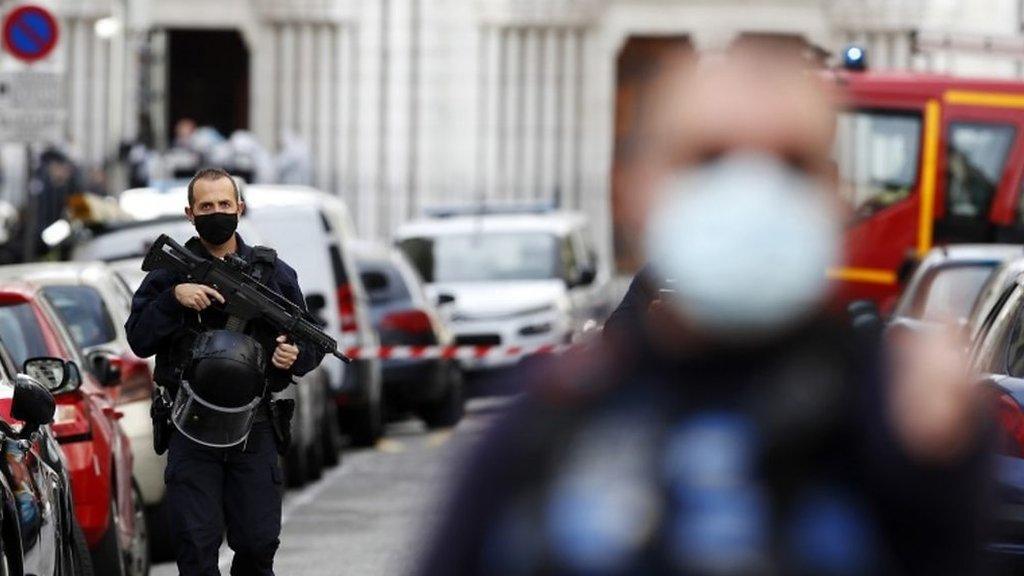
- Published29 October 2020
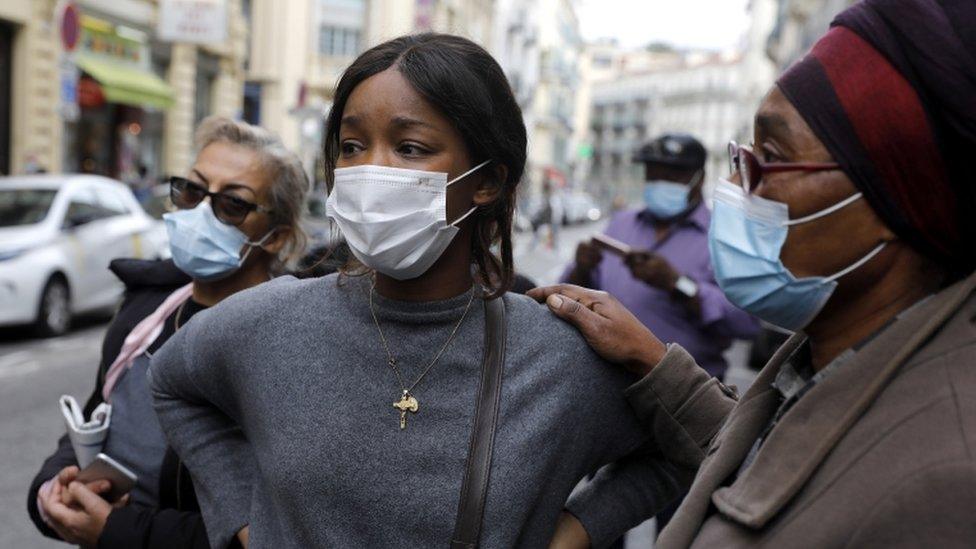
- Published30 October 2020
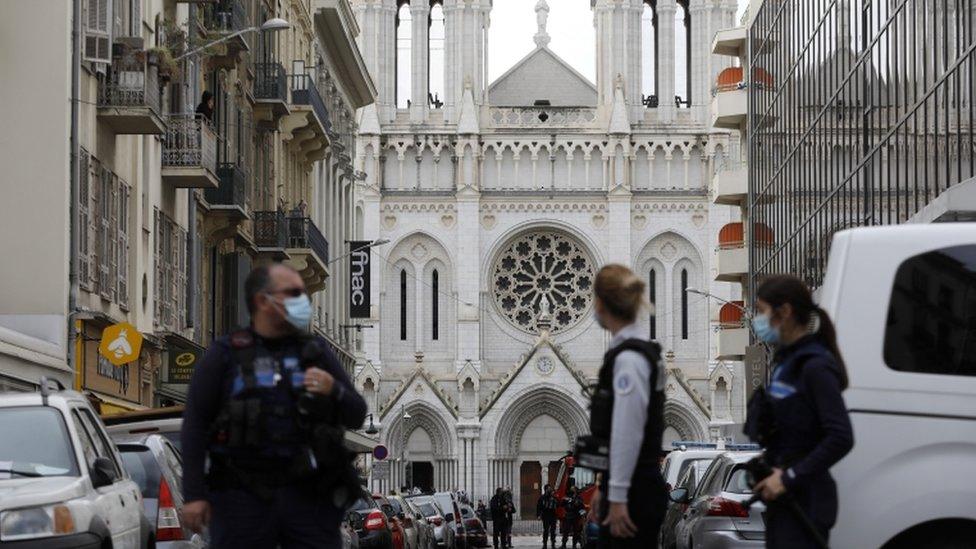
- Published20 October 2020
